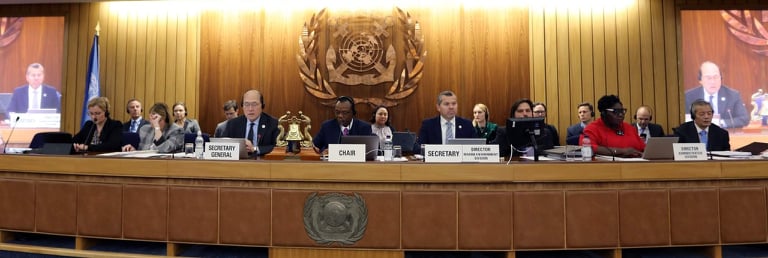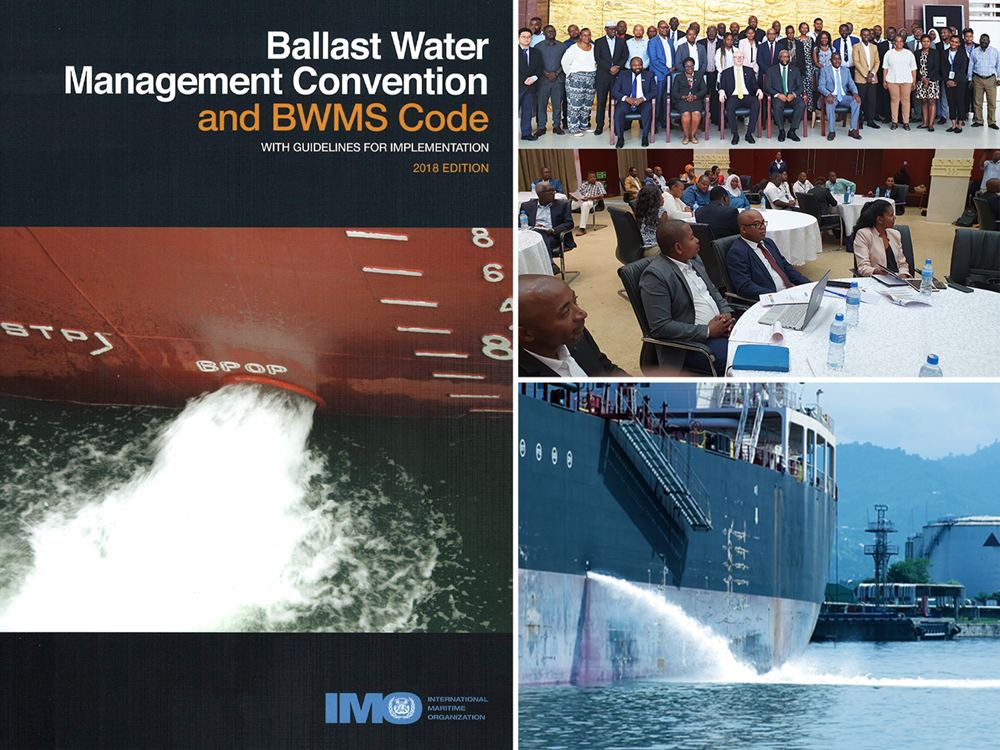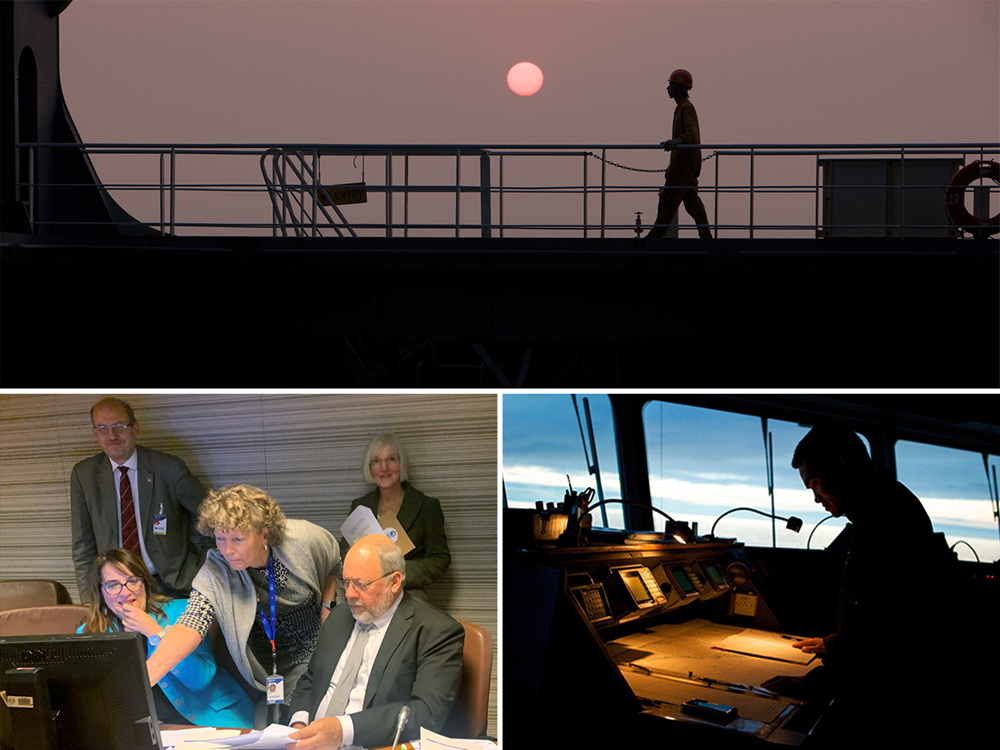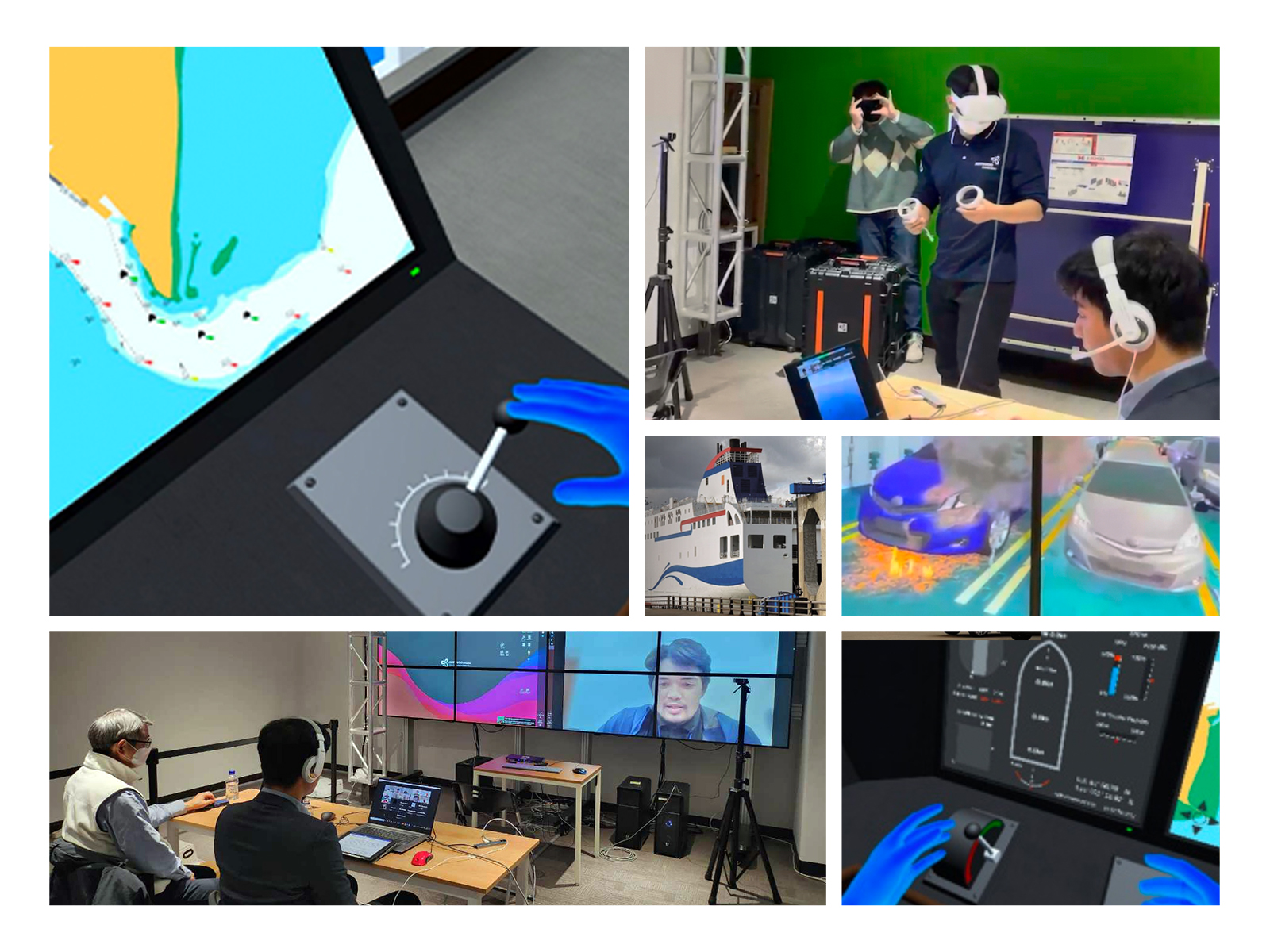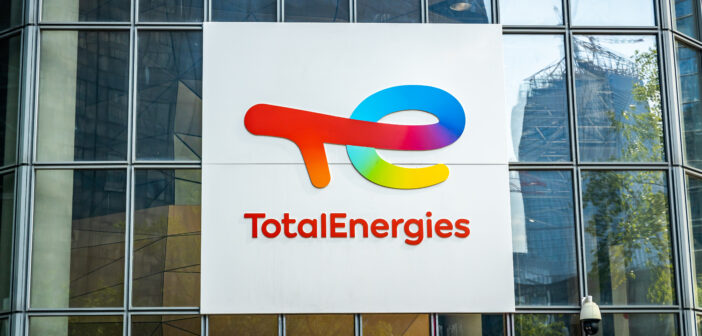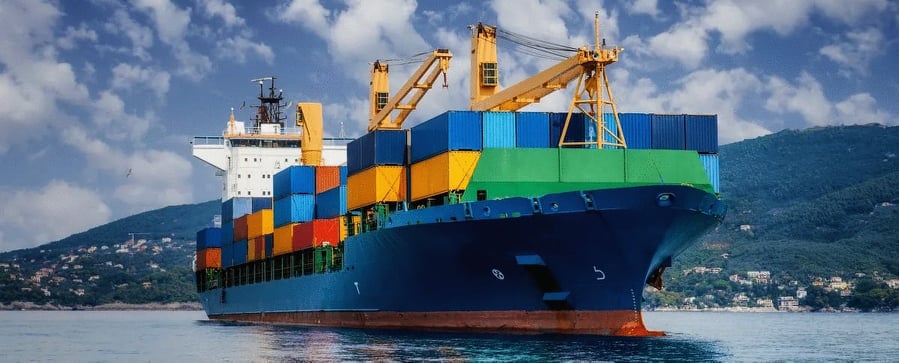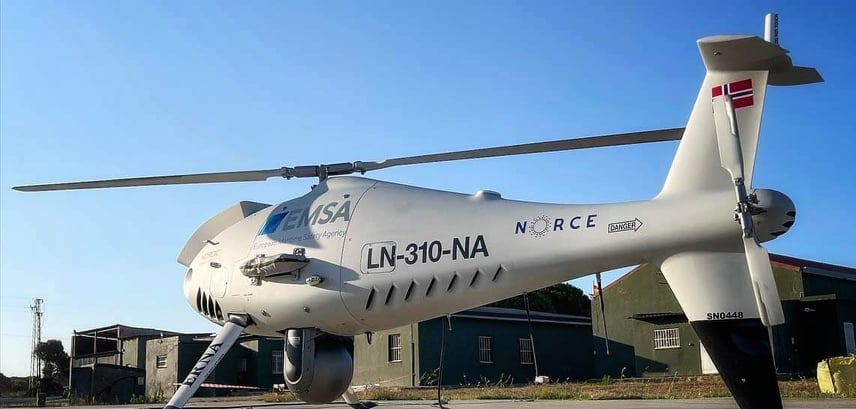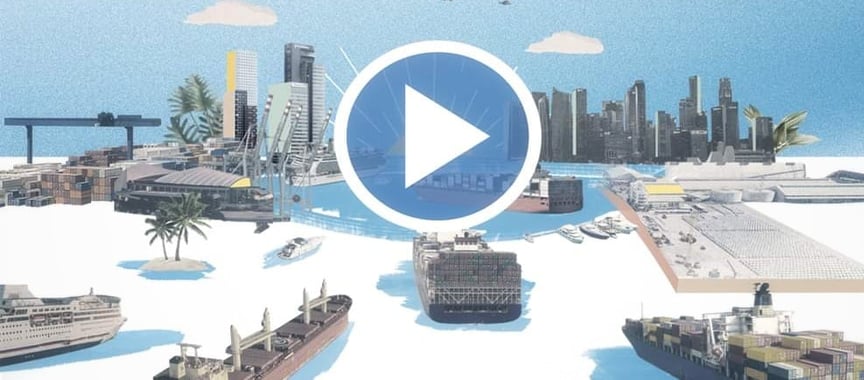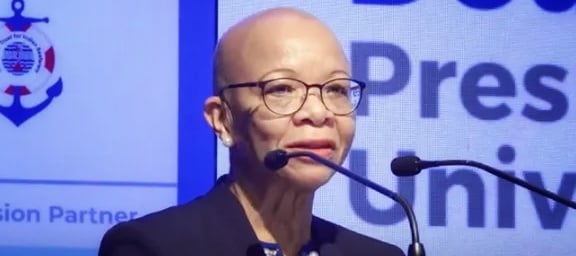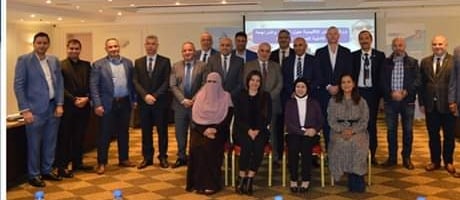The Marine Environment Protection Committee (MEPC) – 78th session will meet in virtual session from 6-10 June 2022
- Tackling climate change – cutting GHG emissions from ships – progressing the work
- Proposal to designate the Mediterranean Sea, as a whole, as an Emission Control Area for Sulphur Oxides
- BWM Convention experience-building phase, application, and proposed amendments
- Discharge water from exhaust gas cleaning systems (EGCS) – guidelines and guidance
- Marine plastic litter from ships – mandatory garbage record books for smaller ships and marking of fishing gear
- Adoption of amendments (watertight doors, GESAMP Hazard Evaluation procedure)
- Protecting seas in the Arctic – regional arrangements for port reception facilities
- Revision of the Anti-fouling Systems Convention guidelines
- Unified interpretations of provisions of IMO environment-related conventions
- MEPC 78 arrangements including media accreditation
Tackling climate change – cutting GHG emissions from ships
IMO is committed to cutting GHG emissions from ships. Mandatory energy efficiency measures were first adopted in 2011 and have been strengthened since The Initial IMO Strategy on the Reduction of GHG Emissions from Shipping was adopted in 2018, setting out a clear pathway toward decarbonization of international shipping. (see /Cutting-GHG-emissions.aspx ) .
In 2021 IMO adopted the “short-term measure” to reduce ships’ carbon intensity in accordance with the timelines set out in the Initial IMO GHG Strategy. The short-term measure introduced the Energy Efficiency Existing Ship Index (EEXI); the annual operational carbon intensity indicator (CII) rating and an enhanced Ship Energy Efficiency Management Plan (SEEMP). (see /Technical-and-Operational-Measures.aspx ).
At MEPC 77, Member States agreed to initiate the process of revision of the Initial IMO GHG Strategy, towards adopting a strengthened revised Strategy in mid-2023 at MEPC 80.
The MEPC 76 session adopted a work plan on the concrete way forward to make progress with candidate mid-and long-term measures, including measures to incentivize the move away from fossil fuels to low- and zero-carbon fuels to achieve decarbonization of international shipping. The Work Plan envisages three phases: Phase I – Collation and initial consideration of proposals; Phase II – Assessment and selection of measures(s) to further develop; Phase III – Development of (a) measure(s) to be finalized.
The MEPC will consider the reports of the two sessions of the Intersessional Working Group on the Reduction of GHG Emissions from Ships (ISWG-GHG 11 and 12).
Draft guidelines/guidance to support the short-term measure
The MEPC will be invited to adopt a series of guidelines to support the implementation of the short-term measure, including on method of calculation of the EEXI, the revised SEEMP, and possible correction factors for CII. (Read more here ISWG GHG 12).
Progressing the work on mid-term GHG reduction measures and associated impact assessments
The IWSG-GHG 12 will report on its progress in advancing towards the further development of a “basket of candidate mid-term measures” – integrating both various technical (for example, a GHG fuel standard and/or enhancement of IMO’s carbon intensity measures) and carbon pricing (for example, a market-based measure) elements. Further discussion is expected during the MEPC 78 session.
ISWG-GHG 11 will report on progress in reviewing the Procedure for assessing impacts on States of candidate GHG reduction measures, which will facilitate a future comprehensive impact assessment of a “basket of candidate mid-term measures”.
Revision of the Initial GHG Strategy
Following the agreement at the last session to work towards adopting a strengthened revised GHG Strategy in 2023, the MEPC 78 session will have for consideration a number of documents providing concrete proposals and comments related to the revision of the Initial IMO GHG Strategy.
The MEPC is expected to discuss how to proceed with the revision process so that the revised strategy can be adopted at MEPC 80 in mid-2023.
Lifecycle GHG assessment guidelines
ISWG-GHG 11 will report progress in developing draft Lifecycle GHG assessment guidelines (LCA guidelines) which will allow for a Well-to-Wake calculation, including Well-to-Tank and Tank-to-Wake emission factors, of total GHG emissions related to the production and use of alternative marine fuels.
Proposal to designate the Mediterranean Sea, as a whole, as an Emission Control Area for Sulphur Oxides
The MEPC will consider a proposal to designate the Mediterranean Sea, as a whole, as an Emission Control Area for Sulphur Oxides (SOx-ECA), under MARPOL Annex VI.
In a SOx-ECA, the limit for sulphur in fuel oil used on board ships is 0.10% mass by mass (m/m), while outside these areas the limit is 0.50% m/m.
If approved at this session, the relevant amendments could be adopted at MEPC 79 in December. The amendment could enter into force in mid-2024, with the new limit taking effect from 2025.
Contracting Parties to the Convention for the Protection of the Marine Environment and the Coastal Region of the Mediterranean (Barcelona Convention) and its Protocols agreed in December 2021 to bring forward the proposal to IMO.
There are currently four designated SOx-ECAs worldwide: the Baltic Sea area; the North Sea area; the North American area (covering designated coastal areas of the United States and Canada); and the United States Caribbean Sea area (around Puerto Rico and the United States Virgin Islands).
BWM Convention experience-building phase, application, and proposed amendments
The Ballast Water Management Convention (BWM) has been in force since 2017 and aims to prevent the spread of invasive aquatic species in ballast water.
In 2017, MEPC 71 established the ballast water experience‑building phase (EBP) (resolution MEPC.290(71)), in order to carry out a systematic and evidence-based review of the BWM Convention, potentially leading to a review of the Convention and development of a package of amendments.
The MEPC will have into consideration the data analysis report on the EBP, which highlights the main points identified during the data analysis (MEPC 78/4/1).
In addition, the MEPC will consider a proposal by 10 Member States to establish a Convention Review Plan (CRP) to guide the holistic review of the BWM Convention, which had been agreed as the next stage of the EBP; the proposed CRP would frame the relevant work until 2026.
MEPC 78 is expected to establish the Ballast Water Review Group to, inter alia, consider the data analysis report and the way forward towards the Convention review stage.
The MEPC will also, inter alia, consider:
- proposals related to the application of the BWM Convention to ships operating at ports with challenging water quality;
- proposed amendments to the BWM Convention or its associated guidelines, relating to the temporary storage of treated sewage and grey water in ballast tanks, the form of the Ballast Water Record Book, the example ballast water reporting form, and the application of the BWM Convention to specific ship types;
- other new or revised guidelines, including on methodologies that may be used for enumerating viable organisms and on re‑evaluations in cases where modifications have been made to a ballast water management system (BWMS).
Discharge water from exhaust gas cleaning systems (EGCS) – guidelines and guidance
The MEPC is expected to consider for approval, as developed by the Sub-Committee on Prevention of Pollution (PPR):
- draft MEPC Circular on 2022 Guidelines for risk and impact assessments of the discharge water from exhaust gas cleaning systems, to provide information on the recommended methodology for risk and impact assessments that Member States should follow when considering local or regional regulations to protect sensitive waters/environment from the discharge water from EGCS.
- draft MEPC Circular on 2022 Guidance regarding the delivery of EGCS residues and stored discharge water to port reception facilities, providing best practices intended to assist both ship operators and port States in assuring the proper management and disposal of EGCS residues and stored discharge water from EGCS into port reception facilities. In 2021, the MEPC adopted the updated Guidelines for exhaust gas cleaning systems, which specify the criteria for the testing, survey, certification, and verification of EGCS as well as discharge water quality criteria.
Marine plastic litter from ships – mandatory garbage record books for smaller ships and marking of fishing gear
MEPC 77 adopted the Strategy to address marine plastic litter from ships, which sets out the following outcomes as key goals: reduction of marine plastic litter generated from and retrieved by, fishing vessels; reduction of shipping’s contribution to marine plastic litter; and improvement of the effectiveness of port reception and facilities and treatment in reducing marine plastic litter.
Actions have been agreed, to be completed by 2025, which relate to all ships, including fishing vessels. The action plan supports IMO’s commitment to meeting the targets set in the UN 2030 Sustainable Development Goal 14 (SDG 14) on the oceans.
The MEPC is expected to approve draft amendments to MARPOL Annex V (agreed by PPR 9), to make the Garbage Record Book mandatory also for ships of 100 gross tonnages and above and less than 400 gross tonnages, with a view to subsequent adoption.
The MEPC is expected to note the ongoing work in the PPR Sub-Committee on the marking of fishing gear and will be invited to provide further advice to the Sub-Committee on possible regulatory options for addressing the marking of fishing gear.
Capacity building to address marine plastic litter from ships
GloLitter Partnerships, a project between the Government of Norway, IMO, and FAO is supporting developing countries, including Small Islands Developing States (SIDS) and Least Developed Countries (LDCs), in identifying opportunities for the prevention and reduction of marine litter.
Adoption of amendments (watertight doors, GESAMP Hazard Evaluation Procedure)
The MEPC is expected to adopt the following amendments (approved at the last session):
- draft amendments to MARPOL Annex I and the International Code for the Construction and Equipment of Ships Carrying Dangerous Chemicals in Bulk (IBC Code) in relation to watertight doors; and
- draft amendments to MARPOL Annex II, updating the abbreviated legend to the revised GESAMP Hazard Evaluation Procedure.
Protecting seas in the Arctic – regional arrangements for port reception facilities
The MEPC will consider, for approval and subsequent adoption, draft amendments to the MARPOL annexes to allow States with ports in the Arctic region to enter into regional arrangements for port reception facilities. The draft amendments to MARPOL Annexes I (oil), II (noxious liquid substances), IV (sewage), V (garbage), and VI (air pollution) were agreed upon by PPR 9. Related draft amendments to the 2012 Guidelines for the development of a regional reception facility plan (resolution MEPC.221(63)) will also be considered.
Revision of the Anti-fouling Systems Convention guidelines
The MEPC will consider the draft text of revised guidelines to support the implementation of the AFS Convention, following the adoption, in 2021, of amendments to include controls on the biocide cybutryne. The amendments enter into force on 1 January 2023. The draft consequential revisions under consideration relate to:
- Guidelines for a brief sampling of anti-fouling systems on ships;
- Guidelines for inspection of anti-fouling systems on ships; and
- Guidelines for survey and certification of anti-fouling systems on ships.
Unified interpretations of provisions of IMO environment-related conventions
The MEPC will consider for approval:
- a draft unified interpretation of appendix I to the BWM Convention (Form of International Ballast Water Management Certificate), concerning the principal ballast water management method(s) employed on the ship;
- a draft unified interpretation on the application of regulation 18.3 MARPOL Annex VI to biofuels.
- a draft revised unified interpretation of paragraph 4.4.6.1 of the NOx Technical Code 2008, to make the interpretation (see MEPC.1/Circ.895) applicable to the “Engine Family” concept under certain circumstances.
MEPC 78 arrangements
Marine Environment Protection Committee (MEPC) – 78th session, 6-10 June 2022
MEPC 78 will be held in virtual sessions, with two plenary sessions using the e-conferencing platform held each day from Monday, 6 June to Friday, 10 June 2022. The first session will take place from 10:00 to 12:30 (UTC+1) and the second session will take place from 13:00 to 15:00 (UTC+1) with a half-hour break between the two plenary sessions each day.
Virtual working groups
The MEPC is expected to establish the following virtual groups:
- ; Drafting Group on amendments to mandatory instruments;
- Ballast Water Review Group; and
- Technical Group on the designation of Special Areas under MARPOL.
Timetable and agenda
See Agenda MEPC 78/1/1 which includes the proposed timetable. docs.imo.org/
Opening/Chair
The meeting will be opened by IMO Secretary-General Kitack Lim and will be chaired by the Vice-chair, Mr. Harry Conway (Liberia). Due to unforeseen circumstances, Mr. Hideaki Saito (Japan), who was re-elected as the Chair of the Committee at the last session, is not available to chair this session.
Marine Environment Protection Committee (MEPC):

Undertakes all environment-related issues in shipping that affects not only underwater ecosystems but also ashore and in the air. This includes topics such as climate change, oil spill prevention, and response, harmful aquatic invasive species and ballast water management, noxious substances transported by ships, waste generated in ships and its management, bilge water management, air pollution, and noise pollution.






